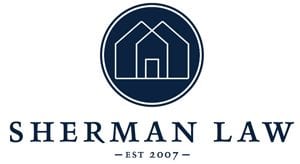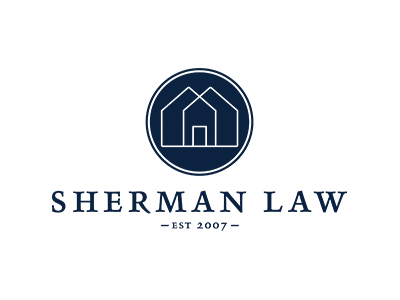When you are considering selling your Massachusetts home, it would be helpful to keep the seller closing costs in mind. While everything is negotiable in a transaction, it is the custom in the Massachusetts market for the seller to have the following expenses paid at closing from the sale proceeds:
- Real Estate Attorney Fee: typically $800-$1100
- Massachusetts Excise Tax Stamps: $4.56 per $1000 of the sales price (.456%)
- Real Estate Agent Commission: typically 5% to 6% of the sales price
- Septic Expenses (aka Title V), if applicable: in the $800 range
- Smoke Detector and Carbon Monoxide Detector Certificate: +/- $50-$100
- Additional Transaction Costs : +/- $350
For further detail, please see below.
1. Real Estate Attorney Fee
It is advisable to retain a Massachusetts real estate lawyer once you accept an Offer to Purchase from your buyer. While the terms of the offer typically guide the transaction, the Purchase and Sale Agreement (P&S) is the binding legal contract that controls the transaction. Because your piece of real estate is unique, so too is each P&S.
The buyer will have an attorney working for them, so a good seller’s attorney will take steps to limit buyer contingencies in the P&S that shift too much risk to the seller. The goal is to prevent nuances in the contract that could result in surprises, unnecessary problems and delays.
It is the job of your attorney to help you avoid those frustrations as much as possible, to ensure that your sale reaches a successful conclusion, and to protect your interests at all times.
The typical roles of your Massachusetts real estate attorney are:
- Review the P&S with you to ensure it reflects your agreement with the Buyer and addresses your concerns. Negotiate any revisions to the agreement with the Buyer’s representative.
- Review the buyer’s title report with you, and discuss a remedy for any issues. And if problems arise during the closing process, attempts to resolve matters in your favor.
- Prepare the new deed that will transfer ownership of the property
- Arrange for the payoff of your mortgage(s) and review the closing figures with you
- Review and clearly explain all closing documents to you.
- If it is inconvenient for you to attend the closing, the attorney can sign for you under a power of attorney.
Depending on the particulars of the transaction, the fee to do all of the above is generally in the range of $800 to $1100.
Typically, the real estate attorney cost does not need to be paid until the closing and is deducted from your closing proceeds.
2. Massachusetts Excise Tax Stamps
Massachusetts residents have been upset about this concept since Colonial Times. Going back to our grade school history books, the Stamp Act Riot of 1765 came about when a tax needed to be paid for legal documents to be stamped with proof of payment of an excise tax.
The same concept still applies to the sale of Massachusetts real estate. At the time of the sale of a home, the seller is required to be a tax to the Commonwealth of Massachusetts in the amount of $4.56 per thousand dollars of the sales price of the home (.00456%). It is collected at the closing on the Settlement Statement and is deducted from your home proceeds. The actual payment is made by the closing attorney at the Registry of Deeds when the documents are filed.
By way of example, if your home sells for $400,000, the Tax Stamp aka Deed Stamps cost would be $1824. This amount holds true in all but one county including Plymouth County, Suffolk County and Norfolk County, and Bristol County real estate closings.
Please note, if you are selling a Cape Cod property, Barnstable County tax stamps are actually $6.48 per thousand. And if you have a Nantucket or Martha’s Vineyard house to sell, there is a 2% additional fee due in Nantucket and Dukes County that is paid to the Land Banks of each island.
The Massachusetts Excise Tax Stamps cost does not need to be paid until the closing and is deducted from your closing proceeds.
3, Real Estate Agent Commission
Should you decide to retain a Real Estate Agent to sell your home, you can expect to a pay a fee usually ranging from 5% to 7% for a full-time professional real estate brokerage fee. This fee includes the marketing of your home, etc etc.
There are discount brokerages out there, but the axiom of “you get what you pay for” often rings true with real estate agents selling likely one of the largest assets you own.
4, Septic Expenses (aka Title V), if applicable
You can ignore this section if your home is served by public sewer. However, if your property has a septic system, this section is very important. Like the Smoke/Co2 detectors, state and local law requires all properties served by private sewerage systems to be inspected for compliance. Title V is the state law controlling this. You must hire a local Title V Inspector to come out and test your system.
You can expect to pay approximately $800 for the inspector and Certifcate of Compliance. A passing certificate is good for 2 years so again, the earlier you can have the test done, the better.
The Massachusetts website is excellent for more information on this and can be found at :
It is still possible to sell your home with a failed inspection, as the money to repair the system could be placed into an escrow account upon sale of your home to a new buyer. Please consult a real estate agent and/or real estate attorney if you think your home may fail the inspection.
5. Smoke Detector and Carbon Monoxide Detector Certificate
Massachusetts State Law requires sellers to present a Certificate at closing that the Smoke Detectors and Carbon Monoxide Detectors in your home meet with local and state regulations. These regulations are ever-changing in an effort to improve public safety so it is wise to bear this in mind when selling your home.
Your local fire department conducts the testing for a fee in the $50-$100 range and will issue the necessary certificate once they deem your home is in compliance. The certificate is typically good for 60 days so it is recommended you get your test done sooner than later. This would provide you the opportunity to remedy any shortcomings in the detectors.
6. Additional Transaction Costs
The above 5 categories are your biggest expenses but there may still be minor costs associated with the transaction. For example, if you have a mortgage and/or Home Equity Line on your home for sale, those will need to be paid with the proceeds of the sale. The mortgage needs to be discharged at the Registry of Deeds and the closing attorney need to ensure that happens. In addition, you may request your closing proceeds be wired directly into your account – for a fee, of course. Finally, your transaction may require a courier and/or overnight delivery of documents. It is safe to assume a total of roughly $350 in such costs.
About the author: The above Real Estate information on Massachusetts Settlement Agent was provided by Timothy Sherman, an active attorney in the real estate law field. Tim can be reached via email at tim@timshermanlaw.com or by phone at 781-664-4936. Attorney Sherman has helped people close on their homes in many Massachusetts cities and towns for the last 9+ Years.
Thinking of buying, selling or refinancing your home? I have a passion for Real Estate and love to share my legal expertise!
I handle closings throughout the South Shore and Greater Boston Area such as: Boston, Braintree, Canton, Cohasset, Dartmouth, Dedham, Duxbury, Fairhaven, Hanover, Hingham, Marshfield, Milton, Nantucket, Newton, Norwell, Plymouth, Quincy, Walpole, Wellesley, Westwood, Weymouth and Wrentham.

